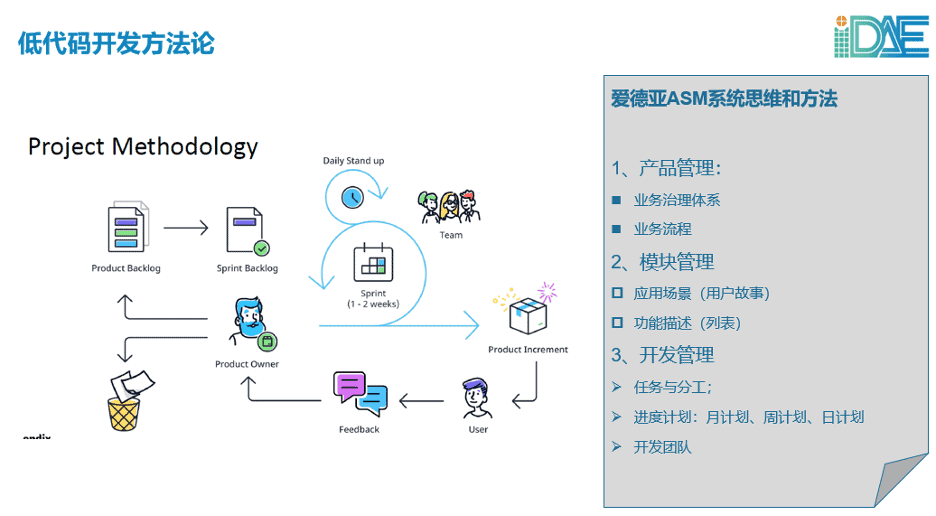AIDEA Empowers Smart Hospital Operators for Rapid Digital Transformation
Founded in 2016, AIDEA is an innovative, internationally oriented modern service enterprise specializing in smart hospital equipment management. AIDEA offers cutting-edge equipment operation and management service solutions and data services to hospitals and enterprises across multiple Chinese provinces and cities.
Historically, AIDEA’s software developers struggled to understand business needs, and traditional development methods resulted in time-consuming, inefficient communication and development bottlenecks during the digitization of advanced management systems.
Pioneering Smart Hospitals
AIDEA’s core competency lies in operations technology (OT), offering full lifecycle management for medical equipment.
However, during the process of digitizing these systems, the company encountered significant challenges due to a lack of software development and IT capabilities, severely affecting development speed and quality. This gap highlighted communication struggles between IT developers and OT personnel.
Founder and CEO of AIDEA, Zhang Bingjun, identified the main obstacles in their digital transformation journey:
- Communication gaps: Developers lacked an understanding of business requirements, while business teams were unfamiliar with technical constraints, slowing down development and reducing efficiency.
- High resource requirements: Traditional development required large teams spanning product management, project management, design, development, and testing roles, resulting in high personnel and communication costs.
- Inconsistent quality: Traditional development often failed to meet expectations for user experience, interactivity, functionality, and data security.
A Catalyst for Digital Transformation
AIDEA sought a modern development approach to improve quality, speed, and efficiency. Zhang Bingjun’s extensive experience at Siemens made him aware of the company’s technological reliability.
Upon learning about Mendix, Zhang found it to be the ideal solution for AIDEA’s needs. This platform offered visual, drag-and-drop development tools that facilitated agile software creation.
Before adopting low-code, AIDEA relied on third-party software developers, resulting in miscommunication, inefficiencies, and excessive costs. Using Mendix enabled AIDEA to form a three-person in-house development team, eliminating reliance on external vendors. The platform’s visual tools simplified complex technical concepts, bridging gaps between IT and OT teams.
By leveraging Mendix, AIDEA developed applications that combined advanced operational techniques with intuitive software design, setting a new benchmark for hospital equipment management. For example, their Procurement Application Process standardized and digitized workflows, enhancing operational efficiency and reducing error rates.
Digital Excellence in Hospital Management
AIDEA ASM (Asset and Service Management), built on Mendix, features comprehensive tools for asset management, maintenance, and service management. The mobile app follows a 9-6-3/9-6-6 module architecture (nine primary modules, each with up to six secondary modules and three tertiary modules).
The low-code approach transformed traditional development processes:
- Improved communication between business and technical teams, fostering consensus and clarity.
- Shortened development cycles with faster delivery.
- Reduced development team size, cutting costs and resources.
For example, a system requiring six developers over six months was completed by a three-person team in under three months using Mendix. This efficiency halved labor and resource requirements. Zhang expressed confidence that efficiency would further improve with experience.

Looking Ahead: Iterative Digital Upgrades with Low-Code
Mendix resolved communication barriers, streamlining development and improving efficiency. AIDEA plans to complete all nine ASM3.0 modules and develop future systems such as the Remote Service (iRS) and Service Delivery Management app.